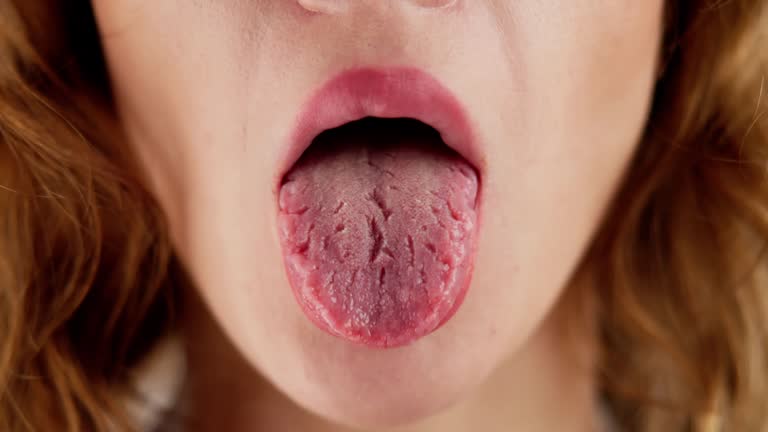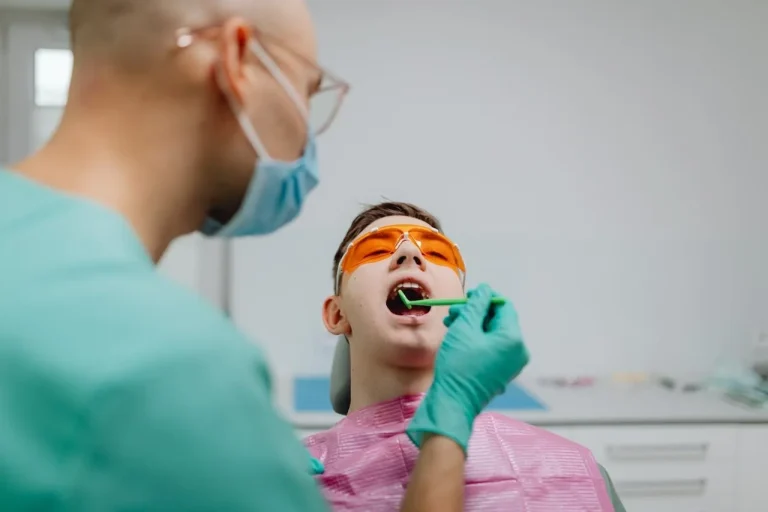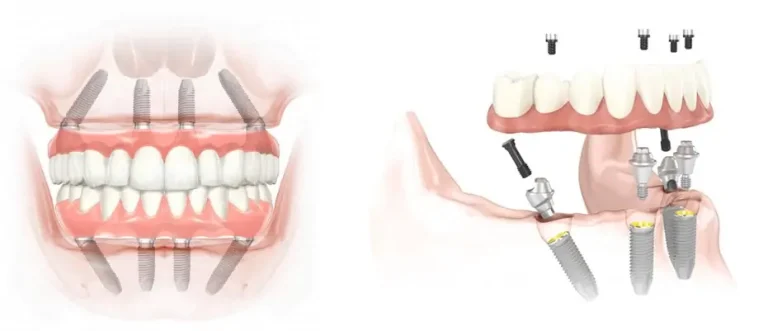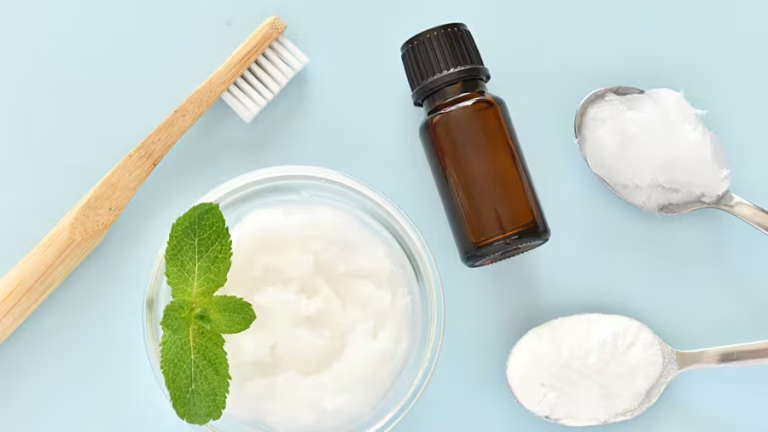Managing Dry Mouth: Causes, Symptoms, and Treatment Options
Dry mouth, medically known as xerostomia, is a common condition that occurs when the salivary glands in your mouth don’t produce enough saliva to keep it moist. While it might seem like a minor inconvenience, dry mouth can significantly impact your oral health and overall quality of life. Saliva plays a vital role in digestion, protecting your teeth from decay, and preventing infections by washing away food particles and bacteria. When saliva production drops, it can lead to discomfort, difficulty speaking or eating, and even more serious dental issues like cavities and gum disease.
Whether caused by medications, medical conditions, or lifestyle factors, dry mouth is a problem that shouldn’t be ignored. The good news is that there are effective treatments and lifestyle changes that can help alleviate symptoms and improve your oral health. In this article, we’ll explore the common causes of dry mouth, its symptoms, and the best treatment options available. By understanding how to manage this condition, you can take proactive steps to protect your smile and feel your best.
1. What is Dry Mouth?
Dry mouth, or xerostomia, is a condition characterized by a lack of sufficient saliva production in the mouth. Saliva is essential for maintaining oral health—it helps moisten and cleanse the mouth, aids in digestion by breaking down food, and protects teeth by neutralizing acids produced by bacteria. Without adequate saliva, everyday activities like speaking, chewing, and swallowing can become challenging, and the risk of oral health problems increases.
Dry mouth can affect anyone, but it’s more common among older adults and individuals taking certain medications or managing specific health conditions. While occasional dry mouth (such as from dehydration or nervousness) is normal, persistent dryness can signal an underlying issue that needs attention. Understanding the root causes and symptoms of dry mouth is the first step toward finding relief and preventing complications.
2. Common Causes of Dry Mouth
Dry mouth can stem from a variety of factors, ranging from medications to underlying health conditions. Identifying the root cause is crucial for effective management. Here are some of the most common causes:
Medications
Many prescription and over-the-counter medications list dry mouth as a side effect. These include:
- Antihistamines (for allergies).
- Decongestants (for colds or sinus issues).
- Antidepressants (for mental health conditions).
- Blood pressure medications (e.g., diuretics).
- Pain relievers (e.g., opioids).
If you suspect your medication is causing dry mouth, consult your doctor—they may adjust your dosage or recommend an alternative.
Medical Conditions
Certain health issues can interfere with saliva production, such as:
- Diabetes: High blood sugar levels can lead to dehydration and dry mouth.
- Sjögren’s Syndrome: An autoimmune disorder that attacks moisture-producing glands, including salivary glands.
- HIV/AIDS: Can affect salivary gland function.
- Parkinson’s Disease and Alzheimer’s Disease: These conditions may indirectly cause dry mouth due to medication or reduced hydration.
Lifestyle Factors
Habits and daily choices can also contribute to dry mouth, including:
- Smoking or using tobacco products.
- Excessive alcohol or caffeine consumption.
- Breathing through the mouth (often due to nasal congestion).
Other Causes
- Dehydration: Not drinking enough water can reduce saliva production.
- Aging: Salivary gland function may decline with age.
- Radiation Therapy: Treatment for head and neck cancers can damage salivary glands.
Understanding the cause of your dry mouth is the first step toward finding the right solution. In the next section, we’ll explore the symptoms to watch for and why addressing them is essential for your oral health.
3. Symptoms of Dry Mouth
Recognizing the symptoms of dry mouth is key to addressing the condition before it leads to more serious oral health issues. While the most obvious sign is a persistent dry or sticky feeling in the mouth, there are other symptoms to watch for:
- Frequent Thirst: Feeling the need to drink water constantly, even after hydrating.
- Difficulty Chewing, Swallowing, or Speaking: Saliva helps lubricate the mouth, making these activities easier. Without it, you may experience discomfort or struggle with basic functions.
- Bad Breath (Halitosis): Saliva helps wash away food particles and bacteria. A dry mouth can lead to an overgrowth of bacteria, causing unpleasant breath.
- Dry or Cracked Lips: A lack of moisture can extend to the lips, making them feel dry, chapped, or even painful.
- Sore Throat or Hoarseness: Dryness in the mouth can extend to the throat, causing irritation or changes in your voice.
- Altered Sense of Taste: Dry mouth can affect your ability to taste food properly, making meals less enjoyable.
- Mouth Sores or Infections: Without enough saliva to protect the mouth, you may develop sores, ulcers, or fungal infections like thrush.
If you’re experiencing one or more of these symptoms regularly, it’s important to take action. Ignoring dry mouth can lead to complications like tooth decay, gum disease, and difficulty wearing dentures. In the next section, we’ll dive into how dry mouth impacts your oral health and why it’s crucial to address it promptly.
4. Impact of Dry Mouth on Oral Health
Dry mouth isn’t just uncomfortable—it can have serious consequences for your oral health. Saliva plays a vital role in maintaining a healthy mouth, and when its production is reduced, the risk of several dental and oral issues increases. Here’s how dry mouth can affect your oral health:
Increased Risk of Tooth Decay and Cavities
Saliva helps neutralize acids produced by bacteria in the mouth and washes away food particles. Without enough saliva, these acids can erode tooth enamel, leading to cavities and tooth decay.
Gum Disease
A dry mouth creates an environment where harmful bacteria can thrive. This can lead to inflammation of the gums (gingivitis) and, if left untreated, progress to more severe gum disease (periodontitis).
Oral Infections
Saliva contains enzymes that help fight off bacteria and fungi. A lack of saliva increases the risk of infections, such as oral thrush (a fungal infection caused by Candida yeast).
Difficulty Wearing Dentures
For those who wear dentures, dry mouth can make them uncomfortable to wear. Saliva helps create a suction effect that keeps dentures in place, and without it, dentures may rub against the gums, causing sores and irritation.
Bad Breath (Halitosis)
As mentioned earlier, dry mouth can lead to bad breath due to the buildup of bacteria and food particles in the mouth.
Difficulty Eating and Speaking
Saliva makes it easier to chew, swallow, and speak. Without it, these everyday activities can become challenging and uncomfortable.
The impact of dry mouth on oral health underscores the importance of addressing the condition promptly. In the next section, we’ll explore the various treatment options available, from over-the-counter remedies to prescription solutions.
5. Treatment Options for Dry Mouth
Fortunately, there are several effective ways to manage dry mouth, ranging from over-the-counter products to prescription treatments. The right approach depends on the severity of your symptoms and the underlying cause of your dry mouth. Here’s a breakdown of the most common treatment options:
Over-the-Counter Solutions
- Saliva Substitutes and Oral Moisturizers: These products, available as sprays, gels, or rinses, mimic the properties of saliva and provide temporary relief. Look for brands specifically designed for dry mouth.
- Sugar-Free Gum or Lozenges: Chewing gum or sucking on lozenges can stimulate saliva production. Opt for sugar-free options to avoid increasing the risk of tooth decay.
- Mouthwashes for Dry Mouth: Use alcohol-free mouthwashes formulated to combat dryness and protect oral health.
Prescription Treatments
- Medications to Stimulate Saliva Production: Drugs like pilocarpine (Salagen) and cevimeline (Evoxac) can help increase saliva flow. These are often prescribed for individuals with severe dry mouth or conditions like Sjögren’s syndrome.
- Specialized Dental Products: Your dentist may recommend high-fluoride toothpaste or gels to strengthen tooth enamel and reduce the risk of cavities.
Dental Interventions
- Regular Dental Check-Ups: Frequent visits to your dentist can help catch and address oral health issues early. Your dentist may also apply fluoride treatments or sealants to protect your teeth.
- Custom-Fitted Mouthguards: If dry mouth is caused by mouth breathing at night, a custom mouthguard can help keep your mouth closed and reduce dryness.
While these treatments can provide relief, they work best when combined with lifestyle changes. In the next section, we’ll discuss simple yet effective adjustments you can make to alleviate dry mouth symptoms and improve your overall oral health.
6. Lifestyle Changes to Alleviate Dry Mouth Symptoms
In addition to medical treatments, making certain lifestyle adjustments can significantly reduce dry mouth symptoms and improve your overall oral health. Here are some practical tips to help you manage dry mouth effectively:
Stay Hydrated
- Drink Plenty of Water: Sip water throughout the day to keep your mouth moist. Carry a water bottle with you to ensure you stay hydrated, especially in dry or hot environments.
- Limit Caffeinated and Alcoholic Beverages: Both caffeine and alcohol can dehydrate your body and worsen dry mouth. Opt for water, herbal teas, or other non-caffeinated drinks instead.
Adjust Your Diet
- Avoid Dry, Salty, or Spicy Foods: These can irritate a dry mouth and make symptoms worse. Instead, choose soft, moist foods like soups, stews, and yogurt.
- Limit Sugary Foods and Drinks: Sugar can increase the risk of tooth decay, which is already higher for people with dry mouth. Opt for sugar-free alternatives when possible.
- Chew Sugar-Free Gum or Suck on Sugar-Free Candy: These can help stimulate saliva production and keep your mouth moist.
Improve Oral Hygiene
- Brush and Floss Regularly: Use a soft-bristled toothbrush and fluoride toothpaste to clean your teeth gently. Floss daily to remove food particles and plaque.
- Use Alcohol-Free Mouthwash: Rinse with a mouthwash designed for dry mouth to help maintain moisture and protect against bacteria.
Create a Moist Environment
- Use a Humidifier: Adding moisture to the air, especially at night, can help reduce dry mouth symptoms. Place a humidifier in your bedroom while you sleep.
- Breathe Through Your Nose: If you tend to breathe through your mouth, try to consciously breathe through your nose instead. This can help keep your mouth from drying out.
Avoid Tobacco and Alcohol
- Quit Smoking: Tobacco use can worsen dry mouth and increase the risk of oral health problems. Seek support to quit smoking if needed.
- Limit Alcohol Consumption: Alcohol can dehydrate your body and reduce saliva production. Cut back or avoid it altogether to improve symptoms.
Practice Good Sleep Habits
- Keep Water by Your Bedside: If you wake up with a dry mouth at night, take a sip of water to moisten your mouth.
- Elevate Your Head While Sleeping: This can help reduce mouth breathing, which often contributes to nighttime dry mouth.
By incorporating these lifestyle changes, you can effectively manage dry mouth symptoms and protect your oral health. However, if your symptoms persist or worsen, it’s important to seek professional help. In the next section, we’ll discuss when to consult a doctor or dentist for dry mouth.
7. When to See a Doctor or Dentist
While many cases of dry mouth can be managed with over-the-counter treatments and lifestyle changes, there are times when professional medical or dental care is necessary. Here are some signs that it’s time to consult a healthcare provider:
Persistent Symptoms
- If your dry mouth persists despite trying home remedies and lifestyle adjustments, it could indicate an underlying medical condition that requires treatment.
Severe Discomfort or Pain
- Difficulty eating, speaking, or swallowing due to dry mouth can significantly impact your quality of life. A doctor or dentist can help identify the cause and recommend appropriate treatments.
Signs of Oral Infections
- Watch for symptoms like white patches in the mouth, sores, or a burning sensation, which could indicate an infection such as oral thrush. These conditions often require prescription medications.
Tooth Decay or Gum Disease
- If you notice an increase in cavities, gum inflammation, or other dental issues, schedule an appointment with your dentist. They can provide treatments to protect your teeth and gums.
Medication Side Effects
- If you suspect your dry mouth is caused by a medication, talk to your doctor. They may adjust your dosage or switch you to an alternative medication with fewer side effects.
Underlying Health Conditions
- If you have a medical condition like diabetes, Sjögren’s syndrome, or an autoimmune disorder, work with your healthcare provider to manage both the condition and its symptoms, including dry mouth.
Regular Check-Ups
- Even if your symptoms are mild, it’s a good idea to mention dry mouth during routine dental or medical visits. Early intervention can prevent complications and improve your overall health.
Seeking professional help ensures you receive a proper diagnosis and personalized treatment plan. In the final section, we’ll wrap up with a conclusion and a call to action to encourage readers to take control of their dry mouth symptoms.
8. Conclusion
Dry mouth, though common, is more than just a minor annoyance—it can have a significant impact on your oral health and overall well-being. From difficulty eating and speaking to an increased risk of tooth decay and gum disease, the effects of dry mouth can be far-reaching if left unaddressed. However, with the right knowledge and tools, you can effectively manage this condition and protect your smile.
By understanding the causes and symptoms of dry mouth, exploring treatment options, and making simple lifestyle changes, you can take control of your symptoms and improve your quality of life. Whether it’s staying hydrated, using over-the-counter products, or seeking professional advice, every step you take brings you closer to relief.
If you’re experiencing persistent dry mouth, don’t hesitate to consult your doctor or dentist. They can help identify the underlying cause and recommend a personalized treatment plan tailored to your needs. Remember, addressing dry mouth early can prevent complications and keep your oral health in top shape.
Start managing your dry mouth today by making small changes to your daily routine. Drink plenty of water, avoid triggers like caffeine and tobacco, and consider using saliva-stimulating products. If symptoms persist, reach out to a healthcare professional for guidance. Your oral health is worth it!
FAQs
Q: What exactly is dry mouth?
A: Dry mouth, or xerostomia, is a condition where your salivary glands don’t produce enough saliva, leading to a persistently dry feeling in your mouth.
Q: What are some common causes of dry mouth?
A: Common causes include certain medications, medical conditions like diabetes and Sjögren’s syndrome, dehydration, smoking, excessive alcohol or caffeine, and breathing through your mouth.
Q: What are the main symptoms of dry mouth I should watch out for?
A: Key symptoms include a persistent dry or sticky feeling, frequent thirst, difficulty swallowing or speaking, bad breath, dry lips, a sore throat, and an altered sense of taste.
Q: How does dry mouth affect my oral health?
A: Dry mouth increases the risk of tooth decay, cavities, gum disease, and oral infections because saliva’s protective qualities are diminished.
Q: What over-the-counter remedies can help with dry mouth?
A: Saliva substitutes, oral moisturizers, sugar-free gum or lozenges, and alcohol-free mouthwashes can provide relief.
Q: Are there prescription medications for dry mouth?
A: Yes, medications like pilocarpine (Salagen) and cevimeline (Evoxac) can stimulate saliva production, but they require a prescription.
Q: What lifestyle changes can I make to alleviate dry mouth symptoms?
A: Drink plenty of water, limit caffeine and alcohol, avoid dry/salty/spicy foods, use a humidifier, and breathe through your nose.
Q: How does staying hydrated help with dry mouth?
A: Staying hydrated by drinking plenty of water helps to keep your mouth moist and encourages saliva production.
Q: Is there a connection between tobacco use and the state of dry mouth?
A: Yes, tobacco use can worsen dry mouth symptoms and increase the risk of other oral health problems.
Q: When should I see a doctor or dentist about my dry mouth?
A: See a professional if your dry mouth persists despite home remedies, causes severe discomfort, shows signs of oral infection, or if you experience increased tooth decay or gum disease. Also, consult if you suspect your medication is the cause or if you have an underlying health condition.







